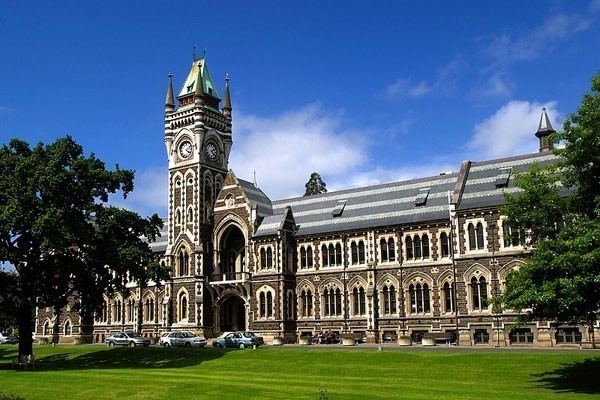Otago University’s Sustainability Office is extending an invite to students for support and feedback as it drives towards ‘Net Carbon Zero’ by 2030. The office is looking to expand its efforts through several engagement sessions with students that aim to reflexively inform and gather feedback on how the University should be targeting its emissions. Critic Te Ārohi spoke with Craig Cliff, the office’s Carbon Zero Programme Manager, to talk about sustainability.
Speaking to the University’s sustainability goals, Cliff said, “The big thing is that net zero part […] it means we can suck in carbon or pay others to suck it in for us.” Balancing the University’s emissions with its carbon removals creates this “net carbon zero”, making the Sustainability Office’s approach two-fold. The University thus has the option of offsetting the emissions it has been unable to eliminate, though Cliff said, “We want to reduce our emissions as much as possible and only pay money to offset when it's absolutely necessary.”
For this, the office needs the support of students – particularly as student travel is accounted for within the University’s measurements. Cliff said, “To get here for a year of study and then to get home we would account for that […] the flights students take to get here are a negative side of the equation […] so what are we doing on the positive side?” Student travel is one of the six key areas within the scope of the programme, making the University almost unique amongst other tertiary facilities in measuring these emissions in data (shout-out to the battlers walking from Auckland.)
The primary innovations of the programme so far have been overwhelmingly focused on staff and operations. Cliff cited the removal of coal from the campus's heating system and the introduction of Mindful-Mondays to Residential Colleges as key successes of the programme. However, despite these advances, the programme (and the University more broadly) has been criticised for its high travel emissions, having overspent on its travel budget by $1.5 million in 2023. Speaking to these criticisms, Cliff said, “We need to be really mindful about how we fly […] In the past, we would have staff who would go back and forth from the Northern and Southern hemispheres.” Without emissions data, Cliff tentatively argued that there had been “a lot more accommodation for the number of flights we have, so I think we are changing things.”
Yet Cliff pointed out that travel emissions were only one aspect of the problem, saying, “Collectively, we’ve all left it too late to pick and choose what we do.” For this reason, Cliff has been looking more directly toward the student body, not only for specific activities but also in efforts to build “sustainable competencies” which students can “take into the workforce.”
The Sustainability Office’s recent ‘Craft & Kōrero’ session, hosted at Te Oraka, was one of the first of their planned student engagement sessions. Cliff said they are “still gaining feedback from participants to figure out what we do next.” Cliff’s call to students was simple, wanting them purely to “know that the programme exists, know that it's run out of the Sustainability Office, and know that we’re really approachable.”
The Sustainability Office has a stall at the Night Market at Auahi Ora this Tuesday 7pm, and wants students to reach out at netcarbonzero@otago.ac.nz.



